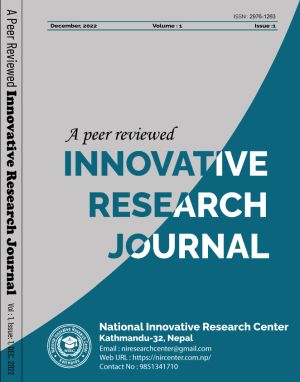Mother Tongue as an Interactional Mediation in Nepalese ELT Classes: A Phenomenological Study
DOI:
https://doi.org/10.3126/irj.v1i1.51816Keywords:
Lived experience, interactional function, use of mother tongue, phenomenology, ELT classAbstract
In this paper, I explore the use of mother tongue (MT) as an interactional mediation in the Nepalese community school English language teaching (ELT) classes within the framework of the lived experiences of the teachers and their Grade 9 students. For this, I observed the classes, collected written lived-experience descriptions (LEDs) from the teachers, and took phenomenological interviews with the teachers (N = 3) and students (N = 5). I analyzed the data thematically using ATLAS.ti 9 from the perspective of the interactional mediational aspect of the sociocultural theory of the second language (L2) learning, which postulates that the mother tongue can have the function of interactional mediator in learning an L2. The study finds the participants have lived the experience of using the MT for its interactional functions. The conclusion is that the interactional function of MT in ELT classrooms cannot be ignored in the context same or similar to the researched one which is characterized by the less interactive students hesitant at speaking in English, and the same MT shared by both the teachers and students.




